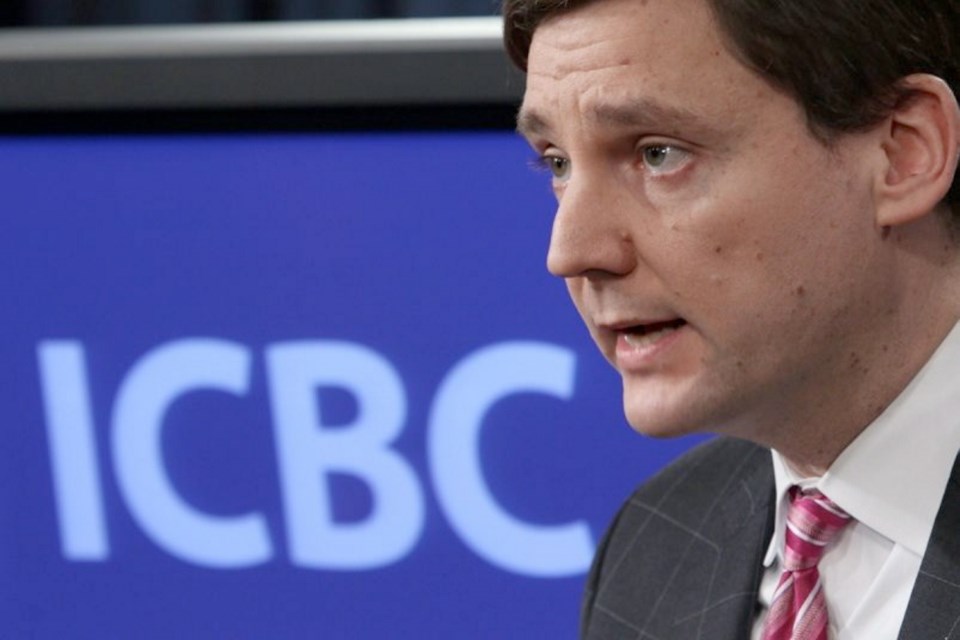B.C.’s Supreme Court has overturned new rules intended to limit the use of experts in automobile insurance lawsuits, delivering a blow to the NDP government’s attempts to stop financial losses at the Insurance Corp. of B.C. and potentially endangering the provincial budget surplus.
The immediate effect is a $400 million financial hit for ICBC in a 2019-20 fiscal year in which the bottom line was expected to improve to a $50-million loss following a $2.5 billion loss during the previous two years.
Thursday’s judgment by Chief Justice Christopher Hinkson ruled that the government’s limit of three expert reports was unconstitutional because it violated the exclusive powers of a court’s control over its processes.
“I find that the impugned rule infringes on the court’s core jurisdiction to control its process, because it restricts a core function of the court to decide a case fairly upon the evidence adduced by the parties,” wrote Hinkson.
“The effect of the impugned rule is to require the court to play an investigatory function in place of its traditional non-adversarial role.”
Attorney General David Eby admitted the decision was a large setback for his efforts to reform the money-losing Crown auto insurer.
“It is difficult when we bring a big reform measure like this forward to lose in this way, and I won’t pretend it’s not, but that doesn’t mean we’re going to give up,” he told reporters Thursday.
“We have a number of potential responses depending on the decision and we’re looking at it carefully to figure out how we’re going to go forward.”
Appealing the decision, or introducing new legislation, are some of the options government is considering, said Eby.
“I think that everybody agrees that the costs of going to court to try and resolve the matter are too high,” said Eby.
“So it may be we need to look at other approaches to address this issue. We had certainly hoped we could find efficiencies in the court rules. More expedited processes. The United Kingdom has an entire set of court rules, limited exclusively to automobile collisions because they recognize that they had an issue. Our justice system is based on theirs. We’ll have to look at all our options. This is obviously a challenging decision for us and our reform efforts here.”
The challenge was brought by Gregory Crowder, who was in a May 30, 2017 rear-end collision involving a tractor trailer that left him with traumatic brain injuries, among other medical problems. His legal action alleged the limit on expert medical reports would not have made it possible to outline the scope of his injuries and need for a lifetime of care. B.C.’s Trial Lawyers Association — which represents personal injury lawyers opposed to the government’s changes to ICBC — joined the case.
They argued that it encroached on the exclusive powers of the court and would create an undue hardship for plaintiffs.
The court largely agreed, though it stopped short of saying it created an undue hardship.
Hinkson wrote that the limit of three expert reports in auto insurance cases was “practically unworkable” and that the government’s offer to allow joint experts and court-appointed experts were not satisfactory replacements.
“We think Mr. Justice Hinkson came down with a very considered and balanced ruling,” said Ron Nairne, a Vancouver lawyer who is president of the Trial Lawyers Association.
“It was an overreach in the sense it was unfair. The more seriously injured a person is, the more they were harmed by this new rule.”
The decision overturns cabinet orders made in February, in which the government declared that ICBC and plaintiff lawyers in automobile injury court cases would only be allowed to use only one expert each and one report each for fast-track claims valued less than $100,000, and up to three experts and three reports each for all other claims.
The change was supposed to save “in excess of $400 million” while encouraging faster settlements through courts.
Expert reports include those on medical conditions and wage loss. They account for millions of dollars in expenses annually for ICBC.
The government cap left some discretion for judges to permit additional court-appointed or joint experts.
The $400 million impact of the court ruling will put pressure the B.C. government’s budget. The projected surplus is $179 million for the fiscal year ending March 31, 2020, meaning the $400 million could either send the province into deficit or require Finance Minister Carole James to dip into contingency funds.
James already had to use $300 million in contingency funding this year to keep the budget from dipping into deficit after a drop in revenue. “It’s a big problem,”James told reporters.
“And we already have problems as you know with ICBC, but, again, until we do the analysis until we take a look at what options are available for us and we take a look at the court decision itself, it’s too early to say the impact.”
James said she has prudence built into the budget that could address some of ICBC’s financial impact.



